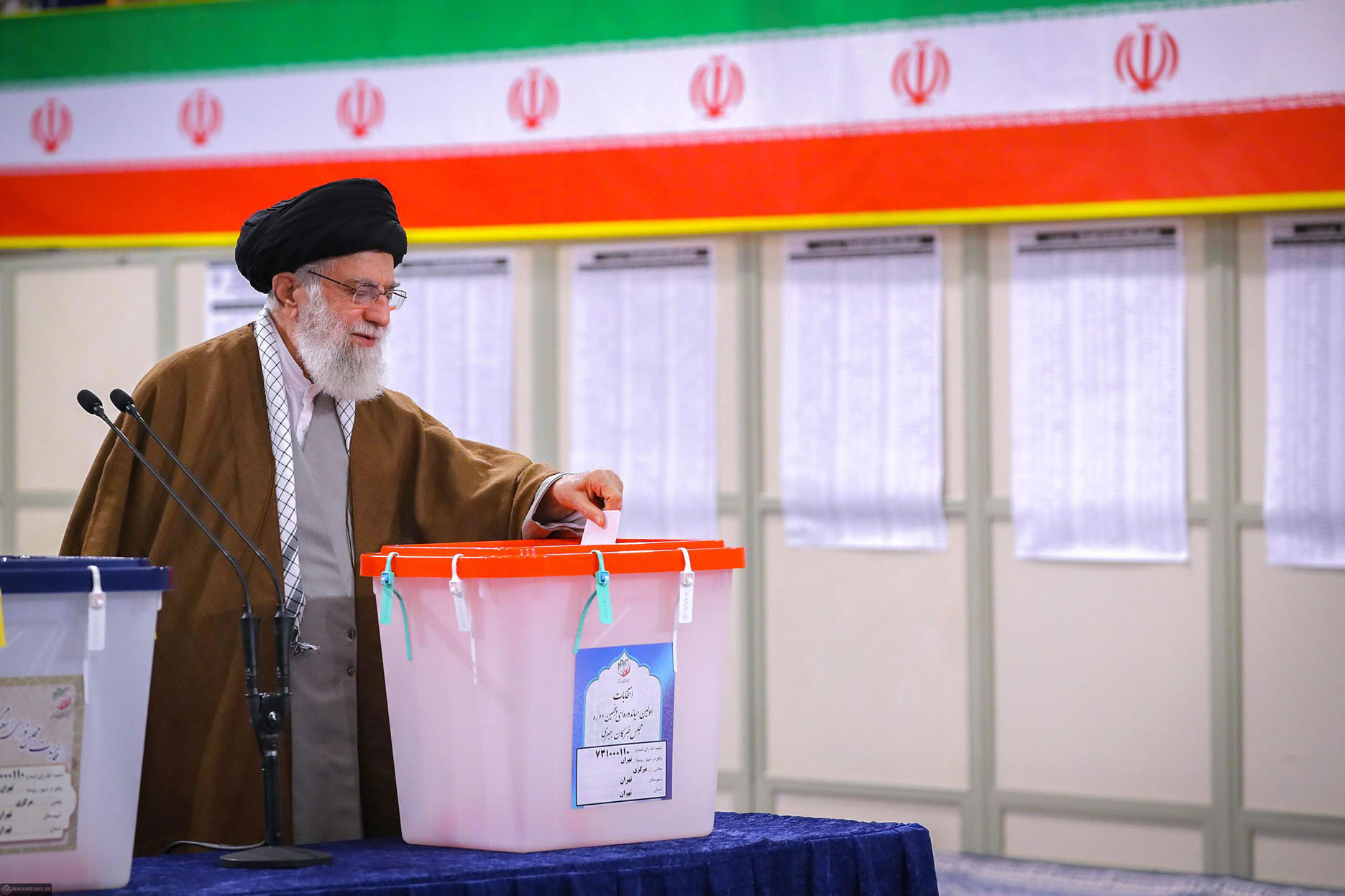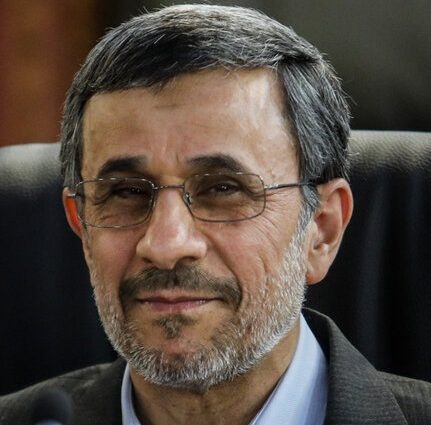Publications
INSS Insight No. 1334, June 16, 2020

Although the presidential elections in Iran are expected only a year from now, the election campaign, which contains the potential for significant changes in Iran’s internal and foreign policies, is already attracting much attention both in Iran and in the West. Both main political camps in Iran, the pragmatist-reformists and the conservative-hardliners, have begun preparing for the presidential elections. President Hassan Rouhani will be finishing his term during one of the most challenging periods since the Islamic Revolution, given the intensifying pressure both at home and abroad. The conservatives enter the election campaign following two years in which they have managed to consolidate their hold on the main centers of power under Supreme Leader Ali Khamenei. In contrast, the reformists, who over the past decade have been pushed out of positions of influence, must decide between boycotting the elections, running independent candidates who are affiliated with them, or supporting a moderate conservative candidate. In addition, the ongoing erosion of public trust in the political system may have an impact on voter turnout and in turn, on the results. Khamenei is likely to influence the final candidate list, based primarily on his drive to ensure conservative control over the government institutions, particularly approaching the end of his rule; his decision regarding renewed negotiations with the West following the US presidential elections in November 2020; and his assessment of how the Iranian elections affect the public’s attitude toward the regime.
The next Iranian presidential elections are expected in late May or June 2021. Since the establishment of the Islamic Republic in 1979, the Supreme Leader of Iran has served as the head of state, and holds most of the national authority. Nevertheless, the President of Iran enjoys significant influence over the management of affairs of state, mainly in internal and economic matters, based on his position as head of the executive authority. In the coming elections, Iran’s citizens will choose a new president to replace Hassan Rouhani following his second four-year term, the maximum tenure allowed by law. Rouhani will be completing his eight years in office during one of Iran’s most challenging periods since the Islamic Revolution on both internal and external levels. In the international arena, Tehran has been forced to deal with the “maximum pressure” policy adopted by the US administration when President Donald Trump decided in May 2018 to withdraw from the nuclear agreement and renew the sanctions against Iran. In the domestic arena, Iran is weathering serious challenges, led by an economic crisis, which grew worse due to the coronavirus pandemic and the collapse of oil prices, popular unrest of unprecedented proportions, and natural disasters.
The two main political camps, the pragmatist-reformists and the conservative-hardliners, are already preparing for the elections against the background of increased tensions between them. Over the past two years, the conservatives, led by Supreme Leader Ali Khamenei, have intensified their already strong grip on centers of power in the country, particularly following a series of important appointments by Khamenei to strengthen conservative control in the country. The most prominent among those was the appointment of hardline cleric Ebrahim Raisi as head of the Judiciary (March 2019), in a process viewed by some as signaling a potential future heir for Khamenei. In the parliamentary elections (February 2020), the conservatives regained absolute control of the parliament (the Majlis), and appointed Mohammad Bagher Ghalibaf, a former Revolutionary Guards officer and former mayor of Tehran as its speaker. He is considered one of President Rouhani’s most prominent opponents.
Similar to the parliamentary elections, the presidential elections are also expected to feature power struggles within the conservative camp, between the central conservative faction and the more radical elements within the conservatives, including the supporters of former president Mahmoud Ahmadinejad. Recent reports suggested that Ahmadinejad intends to come back and run in the upcoming elections. However, it is highly doubtful whether his candidacy, which was already disqualified by the Iranian Guardian Council in 2017 after he disobeyed the Supreme Leader when he decided to run for president, will be approved this time. Saeed Jalili, former secretary of the Supreme National Security Council, has also been mentioned as a possible candidate. Jalili, who ran in the 2013 elections with the hardline "Paydari" (endurance) front, was forced to settle for third place with less than 12 percent support. In a step that may attest to his political intentions leading up to the elections, Jalili sent a letter in early June to Ghalibaf, wishing him success as incoming Speaker of the Majlis in advancing state matters. The potential conservative candidates in the elections also include Raisi, who ran against Rouhani in the 2017 elections; Ghalibaf; Majlis member and former deputy to President Ahmadinejad Mehrdad Bazrpash; and the head of the Imam Khomeini Relief Foundation, Parviz Fattah, who served as energy minister in Ahmadinejad’s government.
In contrast with the conservative camp, the pragmatist-reformist camp comes into the election campaign as the clear underdog. The pragmatists identified with President Rouhani have been weakened by the exacerbated confrontation between Iran and the United States and the government’s failure to provide a response to the population’s distress. Rouhani’s political opponents accused his conciliatory policy of leading to a capitulation agreement, whereby Iran agreed to painful concessions without receiving anything in exchange. Since his reelection in 2017, Rouhani has found it more difficult than ever to fulfill his commitments to improve the economy and to expand individual freedoms. His freedom of action remains limited by the conservatives, led by the Supreme Leader and the Revolutionary Guards, and he has faced criticism from both his political opponents on the right and his former supporters in the pragmatist camp.
In the past two presidential elections, the reformists, who were pushed out of positions of political influence over the past decade, were forced to support moderate conservative candidates, such as Rouhani, as the lesser of the evil options. The experience of the most recent parliamentary elections, in which the Guardian Council disqualified the vast majority of candidates identified with the pragmatist-reformist camp, raises a significant doubt as to the chances of reformist candidates to pass the candidate vetting stage. The reformists are well aware of the increasing conservative hold on sources of power, and it is not out of the question that they may prefer to avoid running candidates of their own.

Senior pro-reform political analyst Sadeq Zibaklam recently assessed that the reformists are so weak that not only do they have no chance of winning the elections, but even if they support a moderate conservative as they have done before, it will not be sufficient to ensure his victory. As the elections draw closer, the dispute among the reformists regarding the best election strategy is expected to heighten: boycott the elections; run independent candidates more clearly identified with the pragmatic camp – such as Foreign Minister Mohammad Javad Zarif, who denied that he intends to run in the elections, or Vice President Eshaq Jahangiri; or support a moderate conservative candidate such as outgoing Majlis Speaker Ali Larijani or the Iranian leader’s senior advisor on international affairs Ali-Akbar Velayati, who have already run in previous election campaigns and have not yet announced whether they intend to run again in the upcoming elections.
While the two political camps prepare for the elections, the erosion of the public’s trust in the authorities continues, in view of their behavior in the early stages of the coronavirus pandemic and in the scandal over the shooting down of the Ukrainian plane by the Revolutionary Guards in January 2020. The loss of public trust was evident in the unprecedentedly low voter turnout in the most recent parliamentary elections – 42 percent, the lowest since the Islamic Revolution. The calls heard during the protests in the past two years, along the lines of “conservatives, reformists, the story is over for all of you,” attest to the loss of public trust in the political system in general, which may have an impact on the voting rate in the presidential election and on its results. Previous elections suggest that low voter turnout mainly helps the conservatives, who can use regime officials and security and enforcement mechanisms, including the Revolutionary Guards and Basij militia to bring their supporters to the polls.
Khamenei’s position is expected to have a major impact on developments before the election. While his ability to influence the final results is limited, his opinion wields much influence on the decisions of the Guardian Council regarding the vetting of candidates. Khamenei’s position regarding his favored candidate for the presidency is expected to be influenced by his principle desire to ensure conservative control over government institutions, and by his decision regarding the potential resumption of negotiations with the West following the elections in the United States in November 2020. A hint of Khamenei’s preference can be found in a speech he delivered to students on May 17, in which he declared that dealing with the country’s problems requires a “young and faithful government that supports the party of God.” It seems that his determination to ensure the dominance of the religious-conservative establishment in all government institutions is growing as the end of his term draws near. Under these circumstances, and in advance of the expected struggle over the succession after his death, Khamenei is increasing his efforts to make sure that control over the various sources of power remains in the hands of his loyalists. However, the leader will also be forced to take public opinion into account, as well as the potential effect of the election results on the public’s views toward the regime.


